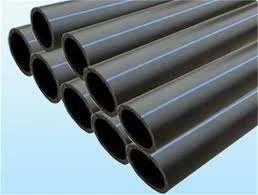Aug . 05, 2024 10:59 Back to list
Exploring the Benefits and Applications of HDPE Pipes in Modern Agricultural Practices and Irrigation Systems
The Role of HDPE Pipes in Agriculture A Sustainable Solution
High-Density Polyethylene (HDPE) pipes have emerged as a game-changer in the agricultural sector, revolutionizing the way irrigation systems are designed and implemented. Known for their durability, flexibility, and resistance to corrosion, HDPE pipes are increasingly being utilized to meet the demands of modern agriculture while promoting sustainable practices.
Understanding HDPE Pipes
HDPE is a thermoplastic made from petroleum. Unlike traditional materials such as metal or PVC, HDPE pipes are lightweight and easy to handle, making installation quicker and more efficient. These pipes come in various diameters and can be manufactured to withstand different pressures, making them suitable for various applications, from simple irrigation systems to complex agricultural networks.
Efficiency in Water Management
Water scarcity is a critical issue in many regions of the world, compelling farmers to seek innovative solutions for water management. HDPE pipes facilitate efficient irrigation practices by minimizing water wastage. Their smooth inner surfaces reduce friction loss, allowing water to flow more freely and uniformly. This ensures that crops receive the water they need without the excess runoff that can lead to soil erosion and nutrient loss. Moreover, HDPE’s resistance to UV radiation means that the pipes will last longer without degrading, ensuring a reliable water supply for years to come.
Versatility and Adaptability
hdpe agriculture pipe

One of the significant advantages of HDPE pipes is their versatility. These pipes can be used for various agricultural applications, including drip irrigation, sprinkler systems, and even as conduits for fertilizers and chemicals. The flexibility of HDPE allows it to adapt to different terrains, making it an ideal choice for irregularly shaped fields or areas with difficult soil conditions. Furthermore, HDPE pipes are available in a range of fittings and accessories, allowing farmers to customize their irrigation systems to meet specific crop requirements.
Eco-Friendly Solution
In the face of climate change and environmental degradation, the agricultural sector is under pressure to adopt more sustainable practices. HDPE pipes offer an environmentally friendly solution as they are 100% recyclable, reducing plastic waste. By implementing HDPE piping systems, farmers can contribute to a reduction in their carbon footprint. Additionally, because these pipes are resistant to chemicals, they can be used safely with various fertilizers and pesticides without leaching harmful substances into the soil or groundwater.
Cost-Effectiveness
While the initial investment in HDPE piping may be higher than traditional materials, the long-term benefits significantly outweigh the costs. The durability of HDPE leads to lower maintenance and replacement costs, while the efficiency in water delivery can result in substantial savings on water bills. Moreover, the increased crop yields associated with effective irrigation practices can lead to higher profits for farmers over time.
Conclusion
The adoption of HDPE pipes in agriculture represents a significant advancement towards sustainable farming practices. With their ability to efficiently manage water resources, adapt to diverse applications, and reduce environmental impact, HDPE pipes are paving the way for a more sustainable agricultural future. As the agriculture sector continues to evolve, the integration of such innovative materials will be crucial in addressing the challenges posed by water scarcity and climate change, ensuring food security for future generations. As farmers increasingly recognize the benefits of HDPE pipes, we can expect to see their implementation expand globally, driving a new era of sustainable agriculture.
-
High-Quality PPR Pipes and Fittings Durable ERA PPR & PVC PPR Solutions
NewsJul.08,2025
-
Black HDPE Cutting Board - Durable, Non-Porous & Food Safe HDPE Plastic Cutting Board
NewsJul.08,2025
-
High-Quality CPVC Panel Durable HDPE & PVC Panels Supplier
NewsJul.08,2025
-
Double PE Welding Rod Supplier - High Strength, Durable & Versatile Welding Solutions
NewsJul.07,2025
-
High-Quality PVC-O Pipe Supplier Durable 75mm PVC Pipe & Connections Leading PVC Pipe Company
NewsJul.07,2025
-
HDPE Drainage Pipe Supplier – Durable & Corrosion-Resistant Solutions
NewsJul.06,2025

